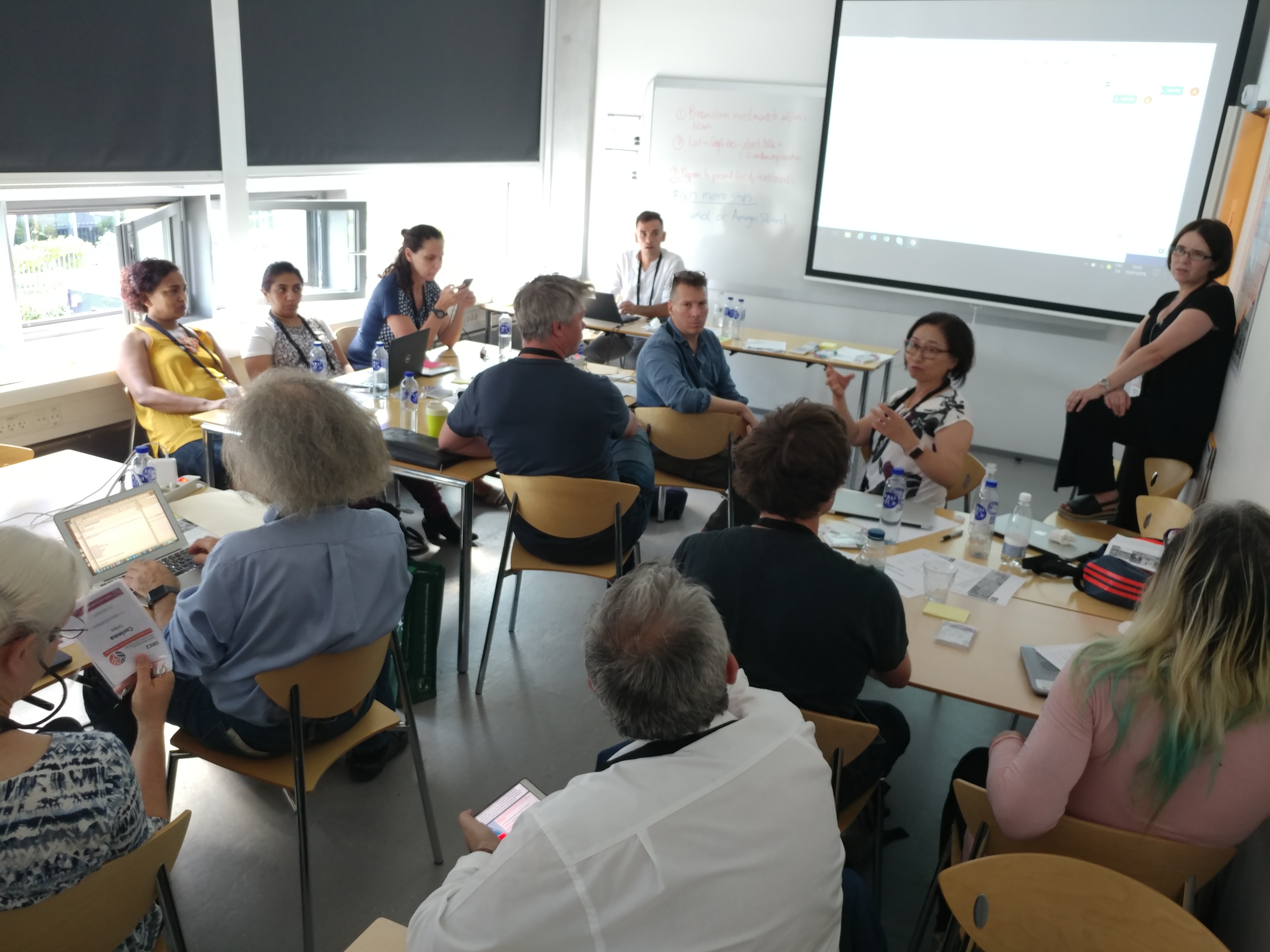JRS is proud to share the news of our four new grants totaling $57,500 to support international conferences relating to biodiversity informatics. Conference support is an important element of JRS’ strategy to foster partnerships and networks for biodiversity informatics capacity development and knowledge sharing.
Supporting conferences is one way that JRS contributes to capacity building and partnerships. Through convening experts, hosting high-level presentations, facilitating professional networking, and creating opportunities for participants to exchange ideas, conferences provide a great venue for attendees to learn about their respective fields. These grants for conference support increase the access of these opportunities to African attendees through travel support. Although the financial amounts are small, especially relative to the JRS technical projects, the professional value of conferences to participants is high. The impacts of the conferences are also long-lasting; project presentations and abstracts will be shared on the respective conference websites. Stay tuned to the JRS social media as these conferences take place!
The conferences are:

Global Biodiversity Information Facility, GBIC 2: Delivering a Roadmap for Biodiversity Knowledge in the Information Age, $24,000, July 24 – 27, 2018
Six years since the first Global Biodiversity Informatics Conference (GBIC), the GBIC2 convened in Denmark in late July. The goal of the second rendition of the conference was to discuss and plan an international coordination mechanism for biodiversity informatics to accelerate the delivery of data for the benefit of science and society. Attendees include representatives from the African Academy of Sciences, the African Open Science Platform, South African National Biodiversity Institute, and the National Museums of Kenya. JRS Executive Director, Don Doering, and JRS Trustee, Kris Krishtalka, also attended. The Foundation’s support of GBIC2 is in the spirit of contributing to the global biodiversity informatics community and to be an advocate for the consideration of African priorities in future planning of the global biodiversity information infrastructure.
Society for the Preservation of Natural History Collections, SPNHC and TDWG 2018 Conference; Collections and data in an uncertain world, $8,500, August 25 – September 1, 2018
Biodiversity Information Standards (TDWG) is the preeminent standard setting organization for biodiversity species data. This year, TDWG will be hosting their annual meeting with SPNHC, a prominent international society that is dedicated to the preservation of natural history collections. The conference will cover topics of interest to both societies, focusing on many aspects of data management; several sessions will tackle disaster planning. JRS has supported the TDWG annual meeting for nearly a decade, and this year JRS is supporting three African scientists to travel to New Zealand to present and participate in the conference. Our support has proven to be a valuable tool to promote collaborations among African and non-African scientists and to advocate for the importance of training and investment in African biodiversity information systems.
National Museum, Bloemfontein, The 9th International Congress of Dipterology (ICD9), $10,000, November 25 -30, 2018
This conference is the major congress of dipterology – the study of true flies. It will be held in Windhoek, Namibia, which will be the first time for the conference to be held on the African continent. The conference will have many technical sessions on taxonomy and systematics and will feature a symposium on biodiversity informatics of Diptera. Dr. Kurt Jordaens, project director for the JRS funded PINDIP project, will also be presenting results on plant-pollinator interactions. As JRS invests in pollinator biodiversity information systems in Africa, we seek to raise awareness of data science and open access to data within the scientific disciplines associated with pollinator biodiversity.
Lilongwe University of Agriculture and Natural Resources, Pan African Fish and Fisheries Association Conference, $15,000, September 24-28, 2018 Mangochi, Malawi
The PAFFA conference is held once every five years to bring together fish and fisheries specialists from all over the world. For the 6th PAFFA conference, to be held on the banks of Lake Malawi, topics will cover fish systematics, ecology, freshwater conservation, food security, sustainable development, and more. JRS funding will support a side event on biodiversity informatics, sharing various informatics approaches to conference participants. In addition, the JRS grant will support travel and conference attendance for 7 African scientists and 5 Malawian post graduate students. This conference mirrors JRS funded projects to enhance biodiversity data in the fisheries sector, such as IUCN Red List assessment in Lake Malawi, mobile app development to monitor local fish populations in the Okavango Delta, and mapping Native Tilapia resources in East Africa. As the JRS portfolio of fisheries biodiversity information projects grows, we hope our grantees will disseminate tools within the fisheries community to enhance access to data across the African continent.

